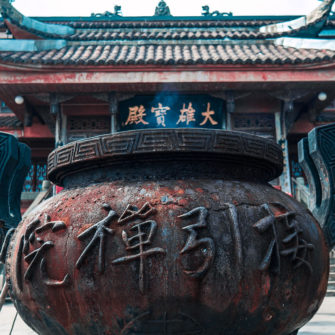You’ve decided that you’d like to discuss your health and/or to seek treatment from a Traditional Chinese Medicine (TCM) practitioner. You’re certainly joining good company. Traditional Chinese Medicine stretches back over 3,000 years and has helped millions of people to conquer countless maladies over the centuries. The holistic perspective embodied in TCM and its tendency toward natural solutions and proven remedies like acupuncture make it an attractive form of alternative medicine for many people.
However, you may find yourself in a situation encountered by many people who decide to investigate TCM. They don’t really know how to find a practitioner they can trust. Unless one has a great deal of previous experience with TCM and its community, it can be challenging to find someone with whom you can feel comfortable and secure.
There are a few things you can do to make the process easier and to find the ideal practitioner of Traditional Chinese Medicine for you.
- You will want to determine how your state regulates and licenses TCM, if it does so at all. Some states license acupuncturists under particular requirements while others provide licensure to Doctors of Oriental Medicine who are permitted to prescribe various herbal remedies and to perform acupuncture. If your state has a regulatory scheme with high standards, it will give you some sense of security when making your decision. If there are no apparent restrictions, you’ll know that it’s even more important to be diligent when making choice. Understanding your state’s laws gives you context to aid in the rest of the selection process.
- You can contact Traditional Chinese Medicine boards and associations to discover if they have recommendations in your area. The National Certification Commission for Acupuncture and Oriental Medicine will provide interested parties with a list of practitioners who they have certified. The American Association of Oriental Medicine will also provide referrals to qualified specialists in various aspects of Traditional Chinese Medicine.
- Don’t be afraid to get to know potential practitioners. You want to be safe. You want the best results. There’s also a great deal of evidence to suggest that the success of some procedures, including acupuncture, may be closely linked to the comfort level of the patient. If you enter a relationship with a practitioner without feeling confident in his or her abilities, you may not experience as much benefit as you would if you entered the relationship at a higher comfort level.
Ask potential practitioners about their background, experience, preferences and approach to TCM. A qualified professional won’t hesitate to provide that information and will not be offended by the questioning. You may also want to find out if the people with whom you are talking are members of any national guilds or TCM associations, such as the American Association of Oriental Medicine. Active participation in organizations of that sort is evidence of a commitment to quality care and professionalism.
Finally, try to seek out a few word-of-mouth recommendations from people who have firsthand experience with TCM treatments. You can also discuss the situation with your regular physician. Many doctors recognize the potential of Traditional Chinese Medicine and may be able to make informed recommendations.
Another well known Chinese remedy is acupuncture which is know to be very effective and here is some more information on health insurance.

